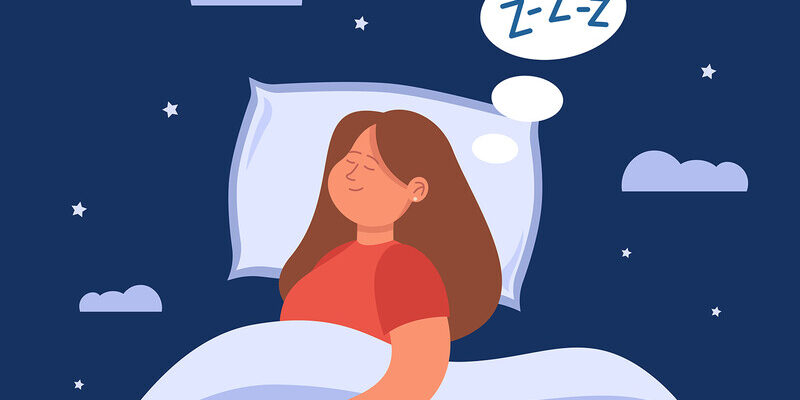Sleeping our way to good health
By Daphne Baldwin Kornrich, MS, RDN, CSOWM, CDN
When we think of behavior changes that promote good health, we generally think of things like eating less, avoiding sugar, drinking more water, and adding an exercise component to our routine. These behavior changes are great; however, most of us don’t realize how important sleep is to our overall health.
Why is sleep so important?
Sleep is a way for our body to rest and recharge. Sleep deprivation can increase our risk for developing insulin resistance, diabetes, cardiovascular disease, obesity, memory loss, mood changes, energy, and may affect mental health (1,2).
Why does lack of sleep cause weight gain?
- Staying up too late may lead to an increase in nighttime eating.
- Sleep deprivation can cause a decrease in energy leading to less movement during the day.
- Lack of sleep affects hormones such as ghrelin and leptin. Ghrelin is the hormone that provokes hunger and leptin signals our body to stop eating. Research has shown that sleep deprivation can cause an elevation in ghrelin and a decrease in leptin, which can lead to an increase in hunger.
- Our natural circadian rhythms may also influence our weight. Those working late night shifts have been known to be at an increased risk for obesity.
- Increased stress can also affect our sleep and eating habits. When we are stressed, we tend to crave comfort foods which are generally high in sugar and salt, such as ice cream and chips (1,2).
How much sleep do we need?
The amount of sleep that we need changes based on our age. Babies, toddlers, children, and adolescents need the most amount of sleep. As we get older the general recommendation is to aim for 7 hours per day (1).
Strategies for better sleep?
- Medical issues such as sleep apnea, which interrupts the sleep cycle, need to be addressed by your physician.
- Stop drinking caffeine in the afternoon.
- Avoid alcohol close to bedtime which can make you sleepy at first but then can lead to a restless sleep.
- Avoid eating too close to bedtime, which can lead to heartburn and feeling too full.
- Turn off computers and other devices that can disrupt your sleep.
- Exercise and physical activity during the day helps with a more restful sleep at night.
- Keep your bedroom cool and uncluttered.
- Limit exposure to bright light prior to bed at night. Darkness sends a signal to our brain to start producing melatonin which helps us get our best sleep.
- Turn on some white noise.
- Be consistent with your sleep schedule.
- Research has shown that smell affects sleep and using essential oils such as lavender may help you sleep better (1,2,3,4).
Behavior change is hard and can be overwhelming at times. The good news is that we have control over our behaviors. Focusing on one small change at a time, such as stopping caffeine in the afternoon, may help us sleep better at night. These small changes can lead to multiple positive changes and eventually create lasting lifestyle changes.
References:
- Sleep:The Third Pillar of Health – Tufts Health & Nutrition Letter
- Are Your Sleep Habits Affecting Your Weight? – Tufts Health & Nutrition Letter
- Light & Sleep: Effects on Sleep Quality | Sleep Foundation
- Essential Oils to Help You Get More Sleep | Sleep Foundation
Daphne Baldwin Kornrich, MS, RDN, CSOWM, CDN has been a registered dietitian nutritionist for 30 years, working in a wide variety of clinical and outpatient settings. Daphne currently specializes in bariatrics and weight management.

